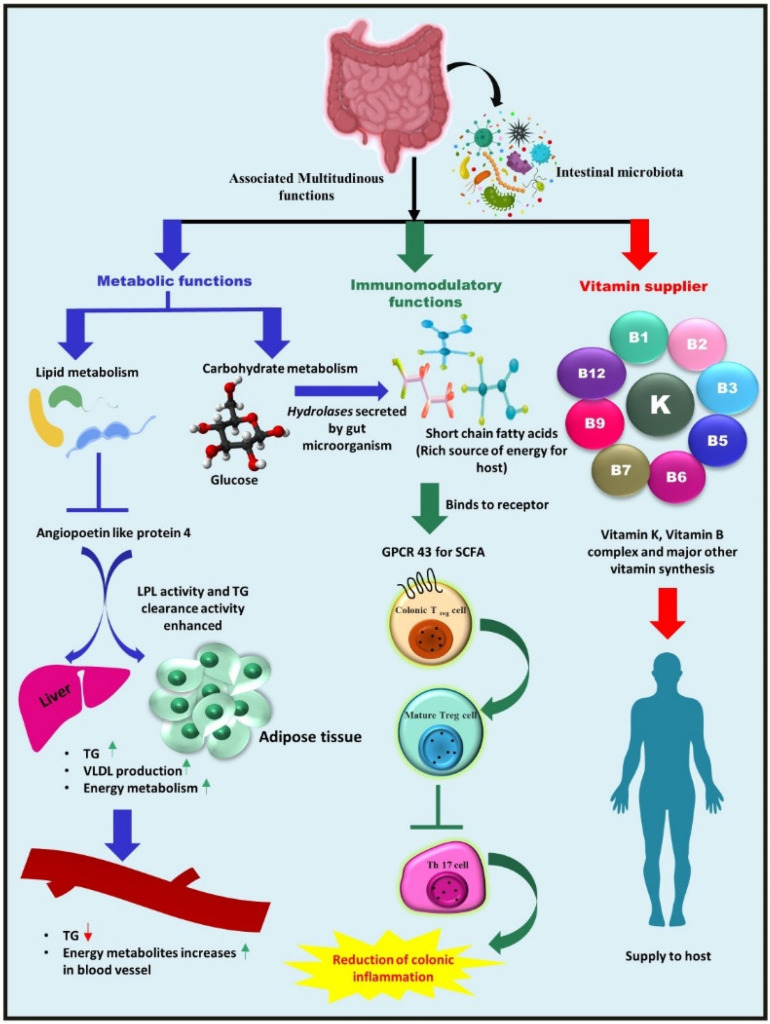Figure 1.
Summary of the gut microbiota-associated functioning in the human body. The gut microbiota leads to enhanced lipid clearance by repressing angiopoietin-like protein 4 (Angptl4), an inhibitor of LPL, due to which energy metabolites are elevated in the serum, which is demonstrated by an increase in associated genes in the liver transcriptome. Triglyceride levels in the serum are reduced while they rise in adipose tissue and in the liver. Dietary carbohydrates are metabolized into SCFAs, a rich energy source for the host by colonic bacteria by employing a special class of enzyme, hydrolases. Furthermore, these SCFAs, especially butyrate, can provoke the GPCR 43 expressed by intestinal epithelial cells and regulate the development, differentiation, and maturation of Treg cells via epigenetic regulation, resulting in the inhibition of Th17 cell development and the reduction of colonic inflammation. Selected gut microbiota can also act as vitamin suppliers to the host, as they synthesize vitamin B complexes and vitamin K and supplies them to the host.

